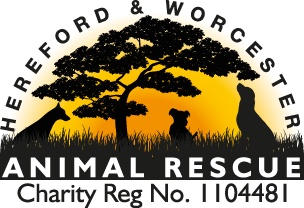Frequently asked questions
I have lost my dog, what can I do?
During this distressing time there are some crucial things you can do; – Contact the local council to report your dog as missing.
- Contact the microchip company that your dog’s microchip is registered with, the most common companies are Petlog, Identibase and PetTrac. Ensure you double check all contact details registered are up to date!
- Contact your registered vet to let them know.
- Contact the local vets, most people take a dog to the local vets when they find one.
- Contact local rescue centres.
- Organisations such as Doglost are fantastic in these circumstances.
- If you use social media then create a post and share with the public. Also print posters for the local area.
I have found a dog, what should I do?
If you have found a stray dog and have it in your possession you must notify your local council to report it. Most vets practices will usually assist with scanning a dog for a microchip to help reunite with its owner. Animal rescues are usually able to scan for a microchip too. You CANNOT just keep a stray dog, you must report it to your local council. If a dog is found within Herefordshire please contact 01432 260000 to report, you can also contact HWAR directly on 01568 760033.
I know of an animal/animals being mistreated/not being cared for to a satisfactory standard. What can I do to help?
The RSPCA are the only organisation that are able to investigate complaints of animal cruelty and neglect, if you have concerns over an animal/animals please visit www.rspca.org.uk where you can find contact numbers and further information. Your local authority may also be able to help and advise. If you need any further help please give us a call on 01568 760033 and we will be happy to give advice.
I have found an injured wild animal, what should I do?
Please see ‘useful contacts’ section. If you are unsure who to contact, your local veterinary practice/ rescue centre are usually very helpful in pointing you in the right direction.
Do you rehome dogs outside of Herefordshire & Worcestshire?
Of course, we have rehomed dogs all over the Country, including Cornwall, Scotland, Jersey & Isle of Wight. As long as we are able to carry out our relevant checks and ensure a happy, safe home for our dogs we are able to consider homes from further afield.
What are your opening hours?
We are open for visits by appointment but we can be contacted on 01568 760033 7 days a week, ideally between 11am and 3pm. If there is no one available to take your call please leave a clear message with your contact number and we will get back to you as soon as we can. In an emergency please call us on 01568 760033.
Why neuter my dog?
Neutering is the general term used for the surgical removal of the reproductive organs in both male and female dogs. – Castration is the removal of the testicles of a male dog. – Spaying is the removal of the ovaries and uterus of a female dog. Neutering may improve some unwanted behaviours in your dog, neutering can also remove health risks associated with unplanned pregnancy, some cancers and fatal infections.
Why vaccinate my dog?
Vaccinations protect your pet from several highly contagious & life threatening diseases such as canine distemper, parvovirus & leptospirosis. Thankfully, we can protect our dogs from some of these using vaccination. Vaccination is a great way to give your dog immunity to some of the worst infectious diseases, and make sure they are as safe as they can be.
Why microchip my dog?
In April 2016, it became compulsory for every dog to have an up-to-date microchip. A microchip is a small electronic chip, around the size of a grain of rice, which is implanted under the dog’s skin and contains a unique number that can be read by a scanner. The dogs owner’s contact details relating to each individual microchip number are registered on a database, if your dog should ever go missing or be stolen and then found the microchip can be scanned by the authorities/vet/rescue centre and returned to the rightful owner quickly and safely.

